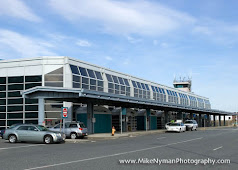Wonder if he will get attacked for hating poor people? Good job MO!!!!
The recent flurry of news regarding downtown re-development in Worcester inspires optimism that the pieces of the puzzle are being put into place. However, a key piece to ensuring our downtown’s rebirth has been overlooked. Responsible city leaders must ask who we should be encouraging to live downtown.
According to the 2010 United States Census, Worcester’s per capita income ranks a disappointing 326th out of 351 Massachusetts cities and towns. Clearly, we do not have a solid “middle income” demographic.
Furthermore, a recent comprehensive housing market study paid for by this city points out that an astonishing 18.5 percent of the households in Worcester are below the poverty level. This represents an 11 percent increase over the last decade. At the same time the region had a 7 percent decline in households below the poverty level. The resulting 18 percent “swing” makes one wonder if Worcester has become the “go to place” in the region for affordable housing.
Perhaps because of perceived political incorrectness, we never seem to hear city officials inquire about the resources being expended to encourage the middle-income demographic. Yet, this is in fact the one group we are struggling to attract and maintain.
To be clear, just because one is supportive of market-rate housing in Worcester’s downtown doesn’t mean one is against affordable housing in general. After all, the housing study also notes that the percentage of affordable housing units in Worcester is significantly greater than required under Massachusetts law and that the present number of affordable housing units will likely be sufficient for Worcester for at least the next five years
After all, every resident of Worcester who wants to live in Worcester should have a place here to live regardless of their income. With the supply of affordable housing units currently meeting or exceeding the demands of our Worcester residents, a natural question arises: Why are there more proposals for mixed-unit housing projects downtown?
The answer may lie in the financing advantages that mixed-use units offer. Although developers benefit greatly with this type of financing, our downtown will not. Such financing often comes with certain “strings attached,” including the requirement that the affordable units remain as affordable units for decades.
Downtown development is in need of a master plan — a long-range vision of what we want our downtown to be. Any “helter skelter” approach to development projects that are not well thought out are simply too risky to embrace. This is especially true for those projects that we may have to live with for a very long time.
If we are to give our downtown retail businesses a fighting chance for survival, we need to ensure that all socioeconomic classes, including those of middle income, live here and spend their money here. It would be poor planning if, for instance, with anticipated improvements in train service to and from Boston, we are unable to develop market-rate housing downtown because the units were previously developed as mixed use.
For these reasons, I am urging the City Council to put a temporary moratorium on all affordable units/mixed use projects in the downtown area. It is time for our city officials to roll up their sleeves and do the hard work necessary to create demand in downtown Worcester for middle income — i.e., market-rate residential units. This is the exact approach taken by the draft Theatre District Master Plan, which advocates for market-rate housing units in all of the buildings in the Theatre District identified for residential redevelopment (excluding dorms).
As for our social responsibility, it is a far more progressive and responsible plan for the city to work on initiatives that would help those in need of affordable housing purchase their own homes instead of simply resigning these individuals to a lifetime of renter status.
In fact, the housing study raises this concern when it states that (although) “the city will continue to provide [affordable housing] services in the future (it) may need to re-evaluate its overall approach to serving the needs of this population in order to avoid placing an unsustainable burden on available financing and social resources.”
Increasing the number of market-rate occupants throughout this city can help change the inevitable outcomes of this reality for the benefit of all income classes living here. John F. Kennedy was often quoted saying “a rising tide carries all boats.” Here’s hoping that our city leaders understand what he meant.
Morris A. “Moe” Bergman is an attorney in Worcester and a former member and vice chairman of the Worcester Zoning Board of Appeals.



